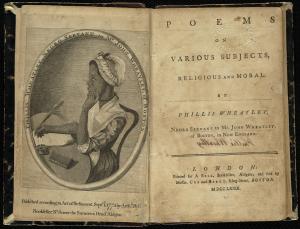Last April, Fuller Seminary president Mark Labberton spoke at a private meeting of evangelical leaders at Wheaton College in Chicago, Illinois, on the crisis within evangelicalism. In his address, Labberton observed, “The central crisis facing us is that the gospel of Jesus Christ has been betrayed and shamed by an evangelicalism that has violated its own moral and spiritual integrity.” Labberton identified issues of power, race, nationalism, and economics as having a deforming influence on the contemporary evangelical movement.
While I found myself cheering on Labberton’s comments, they do raise the question: Is there such thing as “normative” evangelicalism that can then be deformed into something we might consider “defective” evangelicalism? Labberton recognizes that this issue is not new to evangelicalism: “Right alongside the rich history of gospel faithfulness that evangelicalism has affirmed, there lies a destructive complicity with dominant cultural and racial power. Despite deep gospel confidence and rhetoric, evangelicalism has been long-wedded to a devastating social self-interest that defends the dominant culture over and against that of the gospel’s command to love the ‘other’ as ourselves.”
The question is whether the “rich history of gospel faithfulness” defines evangelicalism and the “destructive complicity with dominant cultural and racial power” distorts it, or whether evangelicalism just inherently and paradoxically weds these two together. Another way to ask the question is this: Are Jerry Falwell Jr., Franklin Graham, and Robert Jeffress evangelical heretics or part of the historic evangelical mainstream?
Over the past few weeks, I’ve been blogging through an article on evangelicalism by philosopher Timothy Erdel in order to answer whether Anabaptist Revisions belongs on the evangelicalism channel (or whether I’m the evangelical heretic!). As we’ve discussed, Erdel lists 7 historic meanings of evangelicalism and 10 contemporary meanings. Perhaps most provocatively, he ends the article by offering his own definition of evangelicalism, followed by a discussion of what he believes are defective definitions. Here I’ll discuss his normative and defective definitions and their relevance to Anabaptist Revisions and the evangelical crisis.

The Erdelian Pentagon
When it comes to defining “evangelicalism,” much has been made of the so-called Bebbington Quadrilateral. Named after evangelical historian David Bebbington who identified the quadrilateral, the Bebbington Quadrilateral defines evangelicalism by four characteristics: biblicism, crucicentrism, conversionism, and activism. This quadrilateral has been used as a baseline definition of evangelicalism by many since Bebbington introduced it in the 1980s. But it is not without its problems. Some have suggested that it is too generic: many Christians could identify with these four points without thereby identifying as “evangelical.” Others have suggested that it is too narrow: some might identify as evangelical without fully endorsing one or more of these four points. In other words, the definition seems a bit deductive rather than being derived from the self understanding of those who identify as evangelical. (This is not the place to enter such debates, so don’t shoot the messenger!)
In his article on evangelicalism, Erdel offers a slightly different (though perhaps compatible) definition. According to Erdel, evangelicalism is identified by two theological marker and three behavioral markers (the Erdelian Pentagon?).
Of the theological markers, Erdel writes, “The core theological definitions of evangelicalism were settled during the Reformation and have endured ever since. . . . Evangelicals are born-again Bible-believers. ‘Jesus loves me, this I know, for the Bible tells me so.’ Thus Evangelicals strongly affirm the two great insights reflected in the material (sola fides/sola gratia/solus Christus) and formal (sola scriptura) principles of the Reformation.”
According to Erdel, then, evangelicals are those who:
(1) agree with Luther that salvation is by grace through faith in Jesus
and
(2) believe this because they believe it is what the Bible authoritatively teaches.
If this were all there is to evangelicalism, then it would basically be synonymous with Protestantism (as, indeed, the term is sometimes used outside of North America). However, Erdel combines these two theological traits with three behavioral ones for his more holistic definition.
For Erdel, evangelicals are also those who:
(3) “have traditionally been more concerned with personal piety and moral purity than many ” other Christians;
(4) “have traditionally been very active in their support for evangelism and foreign missionary outreach”;
and
(5) “have had a strong bent toward low church sensibilities, decrying formal, sacramental worship, championing instead spontaneity.”
In sum, the Erdelian Pentagon defines evangelicals as low-church, pietistic, biblicist Protestants who actively support evangelism and missions.
Based on Erdel’s definition, large swaths of Anabaptist-Mennonites are indeed evangelicals, whether they know it or not.
Defective Evangelicalism?
At the same time, the Erdelian Quadrilateral also suggests, with Labberton, that many who consider themselves evangelical might be practicing and proclaiming a defective or deformed evangelicalism. Thus, Erdel writes that “evangelical Christian moral lives are often very similar to those of their secular counterparts” (in contrast to point 3 of his definition). Moreover, “issues of national interest seems to immediately trump biblical questions about the justice and righteousness of US military incursions abroad” (in contrast to point 2 and arguably point 4).
Not only do many self-professed evangelicals seemingly fail to live up to their own ideals, but also, argues Erdel, some evangelicals try to define evangelicalism in light of their own self-serving agendas (and, to his credit, Erdel is self-aware that this critique could be pointed in his direction). So, argues Erdel, some historians and theologians have attempted “to define evangelicalism theologically in ways that exclude the vast majority of persons traditionally understood to be evangelicals,” as when evangelicalism is defined narrowly as requiring Calvinist theological beliefs or patriarchal/complementarian ecclesial and family structures.
Of course, those offering such definitions (e.g., the Gospel Coalition) often do so out of the belief that these doctrines and practices follow necessarily from the second point of Erdel’s definition: biblicism. In as much as evangelicals are marked by biblicism, then, as sociologist Christian Smith has argued, they will almost inevitably differ over who counts as a “true” evangelical: Calvinists or Arminians, complementarians or egalitarians, militarists or pacifists, and so on. Even Erdel’s understanding of evangelicals as low-church could be called into question by those who believe that high-church practices are ultimately more biblical.
As for myself, I want to agree with Labberton and Erdel that the kind of nationalist, militarist, racist, power-hungry, capitalist forms of evangelicalism that often make the headlines these days are indeed distortions of a more true, normative evangelicalism. But, then, nationalist, militarist, racist, power-hungry, capitalist evangelicals would likely say the same about a pacifist, egalitarian, Anabaptist like me. And, at the end of the day, it’s difficult for me to justify my claim without making the somewhat circular or question-begging argument that the traits I identify as distortions are all unbiblical (as opposed to my biblical traits!). So it’s probably best to acknowledge that, yes, these folks are indeed evangelicals. But, at the same time, they aren’t the only kind of evangelicals. All I can say is that I believe there are more attractive kinds. And if you agree, I hope you’ll stick around to explore them with me. (And if you disagree, I hope you stick around too.)












